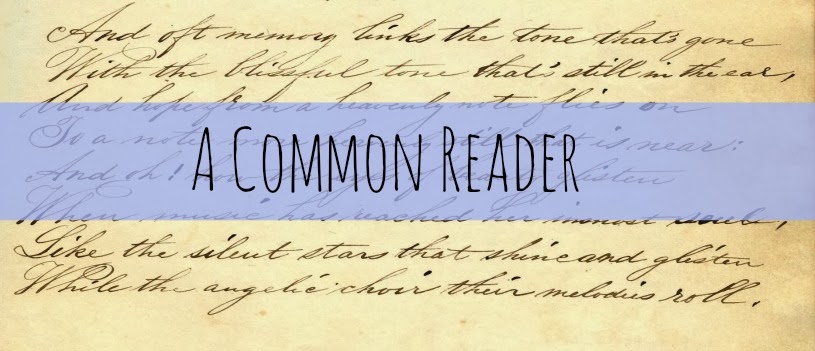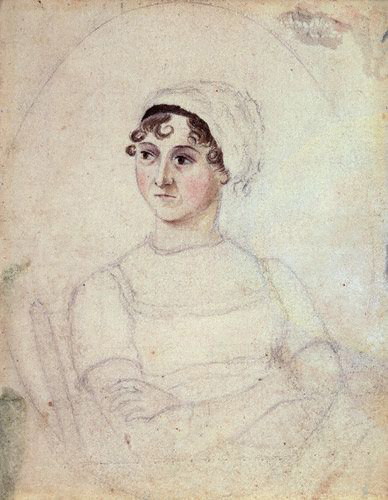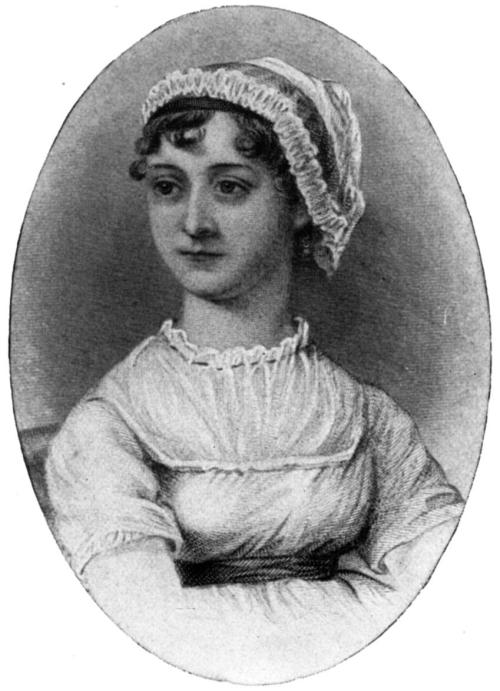 |
| 'It will not do to approach the female authors of this period and divide them into genuine feminists versus the rest, for at this period to become an author was, in itself, a feminist act.' p.33. |
Sunday 30 June 2013
Jane Austen, Feminism and Fiction
This is a must read for any Janeite. What I loved most about this book was how it places Austen squarely in the midst of her radical female contemporaries and predecessors, and it gives Jane back her mantle of 'feminist'. Although by today's standards the feminism involved seems rather tame and out-dated, it is there nonetheless. It also debunks a lot of the 'good Aunt Jane' myths which were created by relatives in the Victorian age, or at least provides an alternative viewpoint. Most importantly it's a nice reminder that we actually know very little about her life, and so excepting conclusions like 'Jane hated Bath' (a theory which is based on the evidence of three letters) is rather rash and unhelpful. The lack of letters from this period has long been attributed to their contents being of an intimate, romantic nature; hence their destruction. However, Kirkham suggests that Jane's period in Bath was a lot more socially and intellectually active than we have been led to believe, for it is 'the one period Austen spent continuously in an urban environment, in contact with a society and culture close to the metropolitan'. There's a good chance she saw many plays, wrote about her opinions on these plays and notable figures she may have met and just generally broadened her literary horizons, yet in Edward Austen-Leigh's 'Memoir' this time is Bath is merely talked of as a time when she 'went a good deal in society, in a quiet way, chiefly with ladies'. As Kirkham remarks, this is a 'masterly dismissal of five vital years in the author's life in such a way as to inhibit further interest in them'.
Anyway, theories abound and I for one find Kirkham's suggestions very persuasive. The rest of the book is full of interesting insights, and I came away with a different view of Jane than when I began reading. Even if that is only to be slightly more skeptical of Austen myths which have almost become accepted as fact.
Wednesday 26 June 2013
The Fry Chronicles
'The Fry Chronicles' covers Stephen Fry's Cambridge University years where he met the likes of Hugh Laurie and Emma Thompson and goes on to describe his first tentative steps into the world of show-business. I have to admit now that I am big fan of Stephen Fry. I watch QI religiously and wrote an essay on his US travels and his book 'Stephen Fry in America' at University. In short, I adore the man. No doubt I was expecting great things and I can honestly say I was not disappointed; it has everything that you could wish for in an autobiography; warmth, humour, sadness and the brilliancy of a life rendered with honesty.
Also I actually found the book to be unexpectedly inspirational. Reading about over-achievers like Mr Fry always makes me want to get up off my arse and do something with my life. When he describes Cambridge for instance, it made me wish that I had the intelligence and means to go to Oxbridge. I know it's only a place and I'm getting a perfectly good degree in Winchester but...oh, to feel a part of all that history! To walk the same halls as Wilde and Forster and Holtby and too many other artists and writers to name. It feels as if it really must be something. I loved reading about his student life the most I think, it reminded me to enjoy my own student days whilst I have the chance. I only have one year left, and I want to squeeze every last ounce of happiness out but the real world comes for me. It is truly a marvelous book, and the vocabulary is breathtaking so read it with a dictionary close at hand... In short, I adored this book because it is probably the closest I will ever get to sitting down and having a good 'ol chinwag with Stephen Fry.
Tuesday 25 June 2013
Cider With Rosie
'Cider with Rosie' was, for me, one of the most evocative books I have ever read. The book is about Laurie Lee's youth in a rural Gloucestershire village after the First World War. Lee recounts a bygone age, where the rural classes were still at the mercy of the seasons and of local superstitions. It is a book of homemade wines, languid summers and rural poverty. You are entirely drawn into the novel from the start by the incredibly insular surroundings of the cramped cottage and the Cotswold valley in which the village sits.
The novel is an unrestrained feast for the senses but it is not this alone which charmed me. I live in Worcestershire, a county in Britain which neighbours Gloucestershire and so, inevitably, there was much in the 'Cider with Rosie' which resonated with me. Being awoken my birdsong from May til August, apple-green spring and unrelenting July sunshine where, it seemed, absolutely nothing seemed to happen but summer. It was not only an ode to the countryside though; there was so much of life, death, youth and age to be found too. A vivid recollection of a way of life largely unknown to us now.
Saturday 22 June 2013
The Irreconcilable Faces of Jane Austen.
‘Two portraits of Jane Austen are reproduced as the frontispiece to this book. The top one, drawn by Cassandra when both were still young, is the only authentic portrait known. It shows a young woman with penetrating dark eyes, sitting with arms rather aggressively crossed and staring boldly ahead. The mouth is caustic, and there is no more than the suspicion of a smile; the curls are slightly absurd. The subject is plainly attired and sits on what appears to be a simple, country-made, ladder-back chair. The lower portrait is the one commissioned for the Memoir, and executed by Mr Andrews of Maidenhead, on the basis of Cassandra’s unacceptable sketch and the advice of the now elderly relations, who told him what their recollection of the appearance of the author was, as they saw her more than half a century earlier. Mr Andrew’s Jane Austen is altogether more decorous than Cassandra’s. The face is no longer slightly alarming, the cap and curls are prettier, the pose is more ladylike and the chair would belong comfortably in a Victorian dining room. The dress is right for the turn of the century, but this is a Victorian lady, dressed up in the fashion of another age, who could not have read Mary Wollstonecraft or sympathised with some of her ideas, although the young woman of Cassandra’s sketch looks as though she might.’-Margaret Kirkham, Jane Austen, Feminism and Fiction (1997)
I’ve always found it difficult to reconcile the Memoir portrait with the witty, sardonic authorial voice of her writing. It’s a shame that the latter portrait is the most widely reproduced and recognised likeness of Jane. I for one much prefer Cassandra’s original portrait. The folded arms and almost impatient look are somehow more appealing than it’s wide-eyed Victorian counterpart.
Wednesday 19 June 2013
I Step Once More Into the Fray...
So, I was just perusing the bookshelves in a local Oxfam charity shop (nothing new there) when I spotted a notice asking for a 'book worm' to volunteer to sort and price books! Well how could I walk past a notice like that? During term time at University I volunteer at an Oxfam, but mainly sorting donations and working the till so I never have the opportunity to get my hands on very many books. I'm still job-hunting for a paid vacancy in a shop or something, but this is too good an opportunity to miss! I'll be gaining experience, meeting new people and spending all day around second-hand books. Utter, utter bliss. The only cause for concern is that I may end up buying more books than I'm selling...but even so it's for a good cause so, roll on Monday and my first day!
Jasmine x
Jasmine x
Tuesday 18 June 2013
The Painted Veil
So far, this summer seems to have been all about reading new authors for the first time and this one was no different. This is an engrossing narrative which throws you straight into the midst of an extra-marital affair and an emotionally manipulative husband who sets out to punish his wife for her indiscretion. Published in 1925, it caused a storm on it's release with it's honest portrayal of adultery and a bored and unfulfilled wife. But from the perspective of a modern reader, it is not the adultery which has the ability to shock, but rather the fall out from the affair.
Kitty Fane's husband, Walter, is a biologist and when he is offered the opportunity to work in an area of China ravaged by cholera, he accepts. With no where else to go, Kitty soon realises that she has to go with him and to almost certain death. Needless to say I could not put this novel down once I had started, and I longed to know what the cold and remote Walter had planned next. The portrayal of Kitty is outstanding; it is so rare to find a male novelist who can paint the machinations of a woman's mind with any degree of accuracy, but he does. Death looms large throughout the novel, and Maugham presents a husband and wife who are both curiously resigned to their own demise. Neither character are particularly likeable but it doesn't really matter for the original and absorbing story carries you through until the very last page.
 |
| "Some of us look for the Way in opium and some in God, some of us in whisky and some in love. It is all the same Way and it leads nowhither." |
Friday 7 June 2013
The Diary of a Nobody
This is such a fun little read! It was originally published as a serial in Punch magazine in 1892 and despite it's short length it is a masterpiece of comic brevity. Precisely nothing out of the ordinary happens to Mr. Charles Pooter, its the turn of phrase which he uses which had me chuckling to myself. Mr Pooter is so absurdly banal as to call him a characterisation of genius worthy of Dickens himself. I'll leave you with a particularly hilarious extract from the text to give a flavour of the style. Whether we like it or not, we are all a little Pooter.
Sunday 2 June 2013
A Moveable Feast
I have a confession to make. A Moveable Feast is my first ever foray into the realms of Ernest Hemingway. I know, I know, he is a literary legend and I am a poor excuse for a student of literature for not being familiar with his work. The only excuse I can make is that I'm British, and the only books we are exposed to are almost exclusively from English writers, which I do not dispute is a travesty.
 |
| "all Paris belongs to me and I belong to this notebook and this pencil" |
Having no prior conceptions about Hemingway (other than his fleeting incarnation in Midnight in Paris) I really wasn't sure what to expect. The first thing that struck me was the writing style: stripped back, bare, raw and honest. Unimaginable skill must have gone into every sentence. It is just so easy to get lost in little literary flourishes and lose the impact of authorial intention along the way. Once I got grips with Hemingway's style I was lost in the ancient cobbled streets of Paris, with senses alive to the hubbub of a busy Cafe. I hung on every one of Hemingway's words, and I couldn't believe how descriptive the prose was despite the dearth of adjectives. If you aren't sold on the astonishing quality of the prose alone, then the presence of Scott Fitzgerald, James Joyce and Gertrude Stein should convince any lover of modern literature to take up this worthy little volume. Upon reading, do prepare to die to see 1920s Paris through the eyes of Hemingway.
Like a Glutton at a Feast
I've been reading like a glutton at a feast this week. My 'to read' pile has been steadily building over the last few months and now that I am free I've been devouring all in sight. So, stand-by for some reviews and views on my latest literary escapades.
Jasmine x
Jasmine x
Subscribe to:
Posts (Atom)





